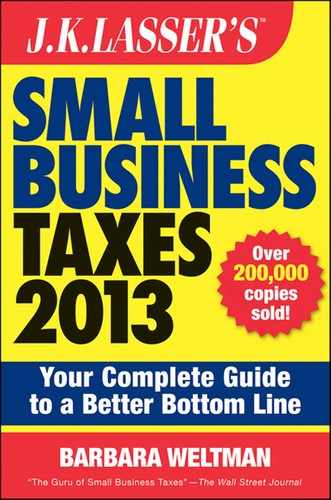Estate Planning Concerns
When you die, if you have not made any special plans, your business interest passes to your heirs according to the terms of your will or state law governing intestacy when there is no will. However, you are free to make whatever plans you want when it comes to your business interest.
Factors in estate planning decisions. Is there a relative (e.g., spouse or child) who already works in the business and is your natural successor to run the business when you die? Or does your family want nothing to do with your business after your death? Do co-owners prefer to take over your ownership interest? Answering these questions can help direct you toward the best way to decide now what will happen to your interest when you die.
Buy-sell agreements. These are contracts among co-owners of a business to fix the actions that will be taken when 1 owner dies. There are 2 basic types of buy-sell agreements:
There are also hybrid agreements that use elements of each type of basic agreement to accomplish their goals.
From a tax perspective, as long as the buy-back is fixed and there is a mechanism for setting the buyout price, the IRS usually will respect the agreement. This means that the price paid under the agreement can be used to set the value of the ownership interest for estate tax purposes.
Funding buy-sell agreements. In most cases, life insurance is used to pay for the buyout at death. If the corporation receives the life insurance, use care to avoid unwarranted income tax effects. If a C corporation is involved, the alternative minimum tax (AMT) may be imposed, depending on the corporation’s pretax profits and preference items for income tax purposes.
Special estate tax rules. If a business owner’s estate is sizable, meaning more than the applicable estate tax exemption amount ($5,120,000 in 2012), there may be federal estate tax as well as state death taxes. These taxes typically must be paid within 9 months after the date of death. However, estates of business owners enjoy certain special tax breaks:
- Special valuation for closely held business real property. Instead of valuing the realty at its highest and best use, it can be valued according to its actual use. This can considerably reduce the value of the property included in the owner’s estate.
- Tax deferral. If the decedent’s interest in a closely held business exceeds 35% of the adjusted gross estate, the estate can elect to defer the payment of estate taxes. Deferral means that only interest is due during the first 4 years; taxes plus interest are then paid over the following 10 years (for a total deferral period of 14 years). A 2% interest rate applies to the tax attributable to the first $1,390,000 of the taxable estate for owners dying in 2012 (this dollar amount may be adjusted in the future).
- Stock redemption to pay estate tax. If the closely held business interest exceeds 35% of the gross estate (minus certain deductions) and the business interests remain with the family, then the estate can elect to have the stock redeemed in order to pay estate taxes. This can be done without incurring income tax liability on a partial redemption of the stock.
